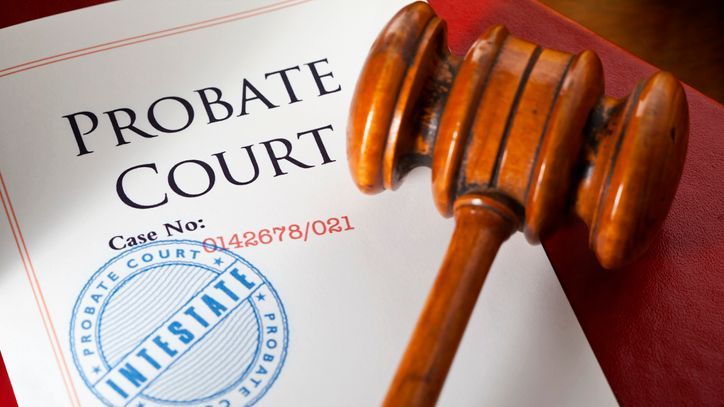

Probate is a legal process that deals with the assets and debts left behind after someone dies. Though necessary in some cases, it can be time-consuming, expensive and emotionally draining for the loved ones of the person who died. For these reasons, many people seek strategies to avoid probate. In Colorado, there are several legal methods available that can help you bypass the probate process, including creating a living trust, owning property jointly, designating beneficiaries and filing a small estate affidavit.
A financial advisor with estate planning expertise can help you make a plan for your assets and potentially avoid probate.
Probate is a court-administered process that occurs after someone passes away. It involves validating the deceased person’s will in court, identifying and appraising their assets, settling debts and taxes, and finally, distributing the remaining assets according to the will or state law if there’s no will.
But probate can be time-consuming, costly and public (meaning your estate plan and the value of your assets become a matter of public record). Probate takes a minimum of six months to complete in Colorado, according to the Denver Bar Association.
There are two primary types of probate in the Rocky Mountain State: Informal and formal.
However, not all estates in Colorado are subject to probate. Smaller estates that only contain personal property and no real estate can automatically bypass probate by simply filing a certain type of affidavit with the county clerk.

Avoiding probate in Colorado is entirely possible. Strategies such as creating a living trust, establishing joint ownership of property, setting up payable-on-death and transfer-on-death designations, and using a small estate affidavit can be employed.
These methods offer a path to potentially avoid the probate process completely, expediting the distribution of assets to beneficiaries. In the following sections, we will provide a brief overview of each method before delving into the details.
Also known as a revocable trust, a living trust is a legal entity created during one’s lifetime to hold ownership of assets. When a person dies, their assets within the trust and a successor trustee ensures the assets are eventually transferred to the designated beneficiaries, completely bypassing the probate process.
One significant advantage of a living trust is privacy. Details of assets and their designated beneficiaries are kept private, unlike a will which becomes a public record once filed in probate court.
Keep in mind that you’ll still want a will, even if you create a living trust. A will can do things that a trust cannot – like designating a guardian for minor children. A will can also lay out how property that’s not included in the trust should be distributed when you’re gone.
Suppose you and your spouse own a lovely mountain cabin in Colorado. When one of you dies, you want the property to automatically pass to the surviving spouse without delay or legal complications. This is where joint ownership comes into play.
In Colorado, joint ownership can be set up as a joint tenancy or as a tenancy in common. The key difference between these two is that in a joint tenancy with the right of survivorship, the surviving owner(s) automatically take control of property when the other owner dies, bypassing probate. This is not the case with tenancy in common.
A payable-on-death (POD) designation is a simple and effective way to avoid probate in Colorado. It allows you to designate beneficiaries who will automatically receive assets upon your death, bypassing the probate process.
This designation, commonly used with bank accounts and certificates of deposit, is a bit like having a “beneficiary in waiting.” Upon your death, the POD beneficiary can claim the money directly from the bank without probate court proceedings.
A transfer-on-death (TOD) deed is like a payable-on-death designation, but it’s used for different assets, including securities and real estate. Much like a POD, a TOD allows the owner of an asset to name a beneficiary who will inherit the asset directly upon the owner’s death, without going through probate. Setting up a TOD designation in Colorado involves completing and signing a TOD deed, getting it notarized and filing it with the county clerk.
Consider a scenario where a young, unmarried individual with few possessions passes away. The value of their estate is small, and they did not own any real property. In such a case, a small estate affidavit could be an appropriate method to avoid probate. This legal document is used to distribute assets of a deceased person with a small estate, bypassing the probate process.
In Colorado, an estate is considered small if it’s worth no more than a set amount that’s adjusted each year for inflation. In 2023, estates worth up to $80,000 could qualify for this exemption.
Eligibility to submit a small estate affidavit in Colorado also requires waiting 10 days after the deceased’s death, filling out what’s called the Affidavit for Collection of Personal Property and submitting it to the holder of property along with a copy of the death certificate.

The probate process in Colorado can be avoided through various strategies such as the use of living trusts, joint ownership arrangements, payable-on-death and transfer-on-death designations, as well as the small estate affidavit. It’s critical to remember that these strategies do not universally guarantee success, as individual circumstances can significantly impact their efficiency.
Photo credit: ©iStock.com/MargaretW, ©iStock.com/stocknshares, ©iStock.com/ilkercelik
Read More About Estate Planning


 a small estate affidavit could help you avoid probate in Michigan." />
a small estate affidavit could help you avoid probate in Michigan." />
More from SmartAsset
SmartAsset Advisors, LLC ("SmartAsset"), a wholly owned subsidiary of Financial Insight Technology, is registered with the U.S. Securities and Exchange Commission as an investment adviser. SmartAsset's services are limited to referring users to third party advisers registered or chartered as fiduciaries ("Adviser(s)") with a regulatory body in the United States that have elected to participate in our matching platform based on information gathered from users through our online questionnaire. SmartAsset receives compensation from Advisers for our services. SmartAsset does not review the ongoing performance of any Adviser, participate in the management of any user's account by an Adviser or provide advice regarding specific investments.
We do not manage client funds or hold custody of assets, we help users connect with relevant financial advisors.
This is not an offer to buy or sell any security or interest. All investing involves risk, including loss of principal. Working with an adviser may come with potential downsides such as payment of fees (which will reduce returns). There are no guarantees that working with an adviser will yield positive returns. The existence of a fiduciary duty does not prevent the rise of potential conflicts of interest.